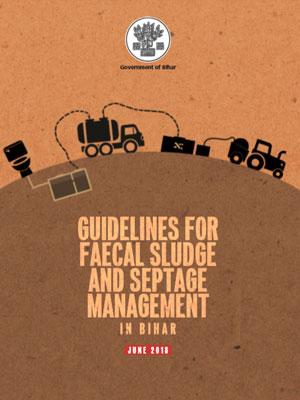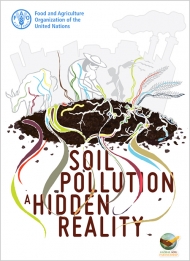Blue and Green Drop Project Report 2024
The 2024 blue drop results show an alarming increase in unsafe municipal drinking water, with 13% of blue drop tests across the country that point to unsafe drinking water. The drinking water of 28 towns
The 2024 blue drop results show an alarming increase in unsafe municipal drinking water, with 13% of blue drop tests across the country that point to unsafe drinking water. The drinking water of 28 towns

According to Census 2011, Bihar reported 11.67 million urban population i.e. 11.25% of total population of state, dwelling in 199 urban centers (which accounts 3.14% of total urban population of country).
A white paper on civic issues, including pollution, sewage, water supply and garbage, has highlighted that a large number of the capital’s woes are a result of multiplicity of authorities. The report by
Every day, African cities create thousands of tonnes of organic waste that could be monetised. Sanitation waste and other wastewater, along with food and agricultural waste, can be turned into profit in
The doomsday scenario of Cape Town’s taps running dry has been averted this year, after its 4 million residents slashed their water consumption and supply was cut off to farmers, but the crisis confronting
THE City of Windhoek has not yet approved plans for a waste water treatment plant at the site of the proposed Ziveli Lifestyle Village south of Windhoek since the development apparently started in 2015.
Government has secured €96 million (approximately 98bn) for putting in place the first ever Kigali Sanitation and Central Sewerage System, funds that will come from both the African Development Bank (AfDB)

Soil pollution poses a worrisome threat to agricultural productivity, food safety, and human health, but far too little is known about the scale and severity of that threat, warns a new FAO report released
<p>At least 16 per cent households in the capital still do not have access to piped water supply, states the Economic Survey of Delhi 2017-18. As opposed to 81.3% in 2015, 83.42% of households in Delhi received piped water supply in 2016 says the Economic Survey of Delhi, 2017-18.</p>
Question raised in Lok Sabha on Waste Water Treatment Plants, 09/03/2018. As per a report published by Central Pollution Control Board (CPCB) in March, 2015, the sewage generation from urban areas in the
Kayunga Town Council has vowed to reject any building plans where developers lack water-borne sanitation facilities. This implies that for developers who plan to use only the traditional pit-latrines